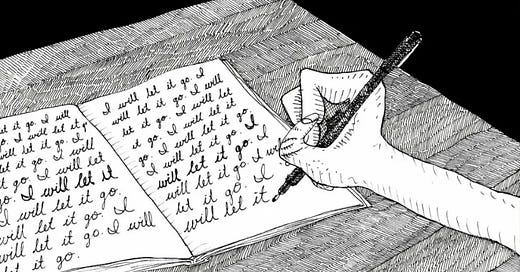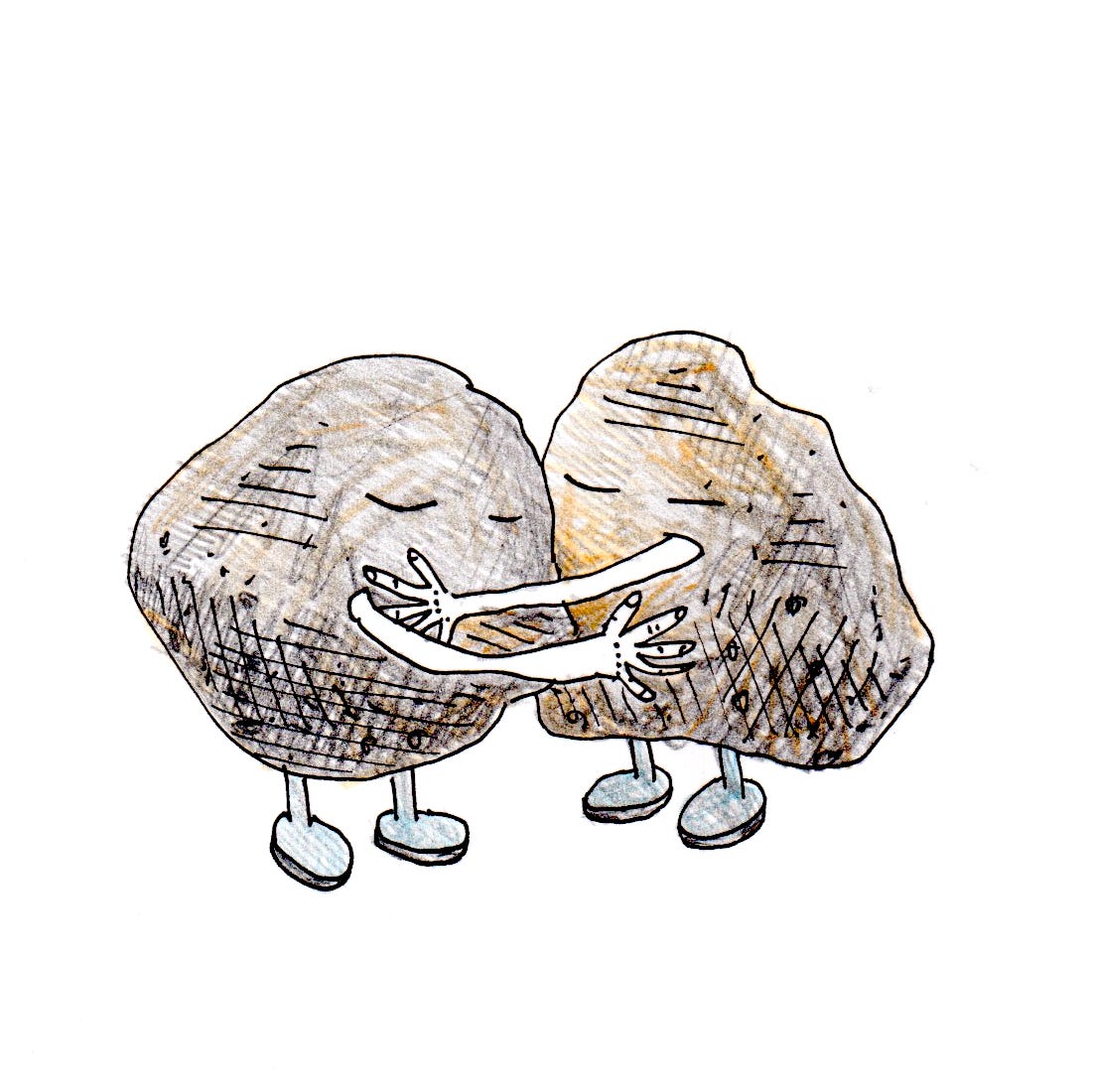Sometimes the Problem Is You
The Brat Pack meets The Four Agreements. Eve Babitz. Dreamy tunes and a ripping poem.
The Small Bow is funded entirely out of the pockets of paying subscribers. We don’t take advertisements or sponsorships. We use your money to help pay for all our freelancers and Edith’s illustrations. Our newsletter is for people who have substance misuse issues or struggle with mental health, but our stories have a far greater reach than that. TSB is for the unlucky and the unlovable. The ugly and the lost. And if you’re undecided—it’s whatever you need it to be.
If our newsletter has helped you feel less wicked and alone, less shitty or afraid, then please consider financially supporting us. Subscribers get access to the entire archive, the Sunday essay, the entire recommendations roundup, and the complete rundown of my weekly recovery program. Seriously—thank you for letting us be of service.
In the past five years of publishing these Sunday rundowns, I've used "The Four Agreements" as a resource more than a dozen times. The Second Agreement—"Don't take anything personally"—is what I've had the most trouble with improving. I still struggle with it, sometimes every day, despite the evidence showing that when I take things personally, I become the worst version of myself. I could list all the examples out here, but if you've read this long newsletter long enough, you're probably aware of how often I fail at this, especially when it comes to anything tied to the Hogan trial1.
A more recent example happened when I took something very personally two months ago after a famous media person slightly blew me off.
Here's what I wrote in the newsletter:
Yesterday morning, I was walking through my old neighborhood after completing my physical therapy session, and I noticed someone I used to know in a professional capacity more than a decade ago. We were never friends but shared a history from the 2010s media orbit. Even though this person is fairly well-known and very rich now, I saw no issue calling out to them as they power-walked through Larchmont Village.
After I reintroduced myself, I could sense that they had no interest in having an extended conversation with me at all, as they sized me up as if I were an asylum escapee. When they asked me if I lived nearby, they sounded genuinely concerned for their own personal safety. The more I held eye contact in what I considered a friendly, happy-to-see-you way, the more they backed away. "Well. Good to see ya!" they said, quickly putting their earbuds back in as I stood there, ready to chat for hours like a pathetic loon.
As I walked home, I began to feel bad—subhuman, really. I replayed the whole thing in my head for an hour, wondering if there had been a reason for the awkwardness, something I may have repressed, forgotten, or never knew about. But my main concern was: why did I care so much?
After that incident in May, I re-read and underlined sections of the Second Agreement, even some sections I'd underlined before, to ensure that the words I was reading would finally stay in my brain so I wouldn't feel this badly again.
(Here's a double-underlined part with a giant asterisk next to it: "You create an entire picture or movie in your mind, and in that picture you are the director, you are the producer, you are the main actor or actress. Everyone else is a secondary actor or actress. It is your movie. The way you see that movie is according to the agreements you have made with life. Your point of view is something personal to you. It is no one's truth but yours.”)
*****
Last Saturday night, I watched the documentary Brats, directed by actor Andrew McCarthy. In the 1980s, McCarthy was an up-and-coming star of teen movies who was trying to advance to more serious roles. Things went according to plan until a June 1985 New York magazine article titled "Hollywood's Brat Pack" was published. That article, McCarthy claimed, changed his life forever.
I grew up and went to movies during the Brat Pack's dominance. All the movies they appeared in were usually good, if not great, and many are still considered classics. As an 11-year-old, "The Brat Pack" was a cool-sounding name full of cool people doing cool movies. On the surface, it appeared that being a first-wave Brat Pack member with perfect sunglasses would be an incredible once-in-a-lifetime experience, not unlike living on the moon for a year or two. But McCarthy wanted the world to know the truth: the Brat Pack was ruinous. It destroyed friendships, jobs, and the credibility of many of the actors, including himself.
Now, after almost 40 years, Andrew McCarthy set out to rescue his fellow Brat Packers from their infamy and restore their dignity.
I don't think he accomplished that mission. Many of the Brat Pack members who spoke to him on camera—most notably Demi Moore, Rob Lowe, Ally Sheedy, and Emilio Estevez—weren't that bothered by it anymore, even as McCarthy tried to convince them otherwise. "They called us BRATS!" McCarthy contended that now, some people will always see them as brats even though some of them are already in their 60s.
At one point, Demi Moore, who appears to be very wise about the choices she's made in her life, suggests to him that maybe part of the reason he's bothered by the article so much is that he believes some of it to be true.
Keep reading with a 7-day free trial
Subscribe to The Small Bow to keep reading this post and get 7 days of free access to the full post archives.





